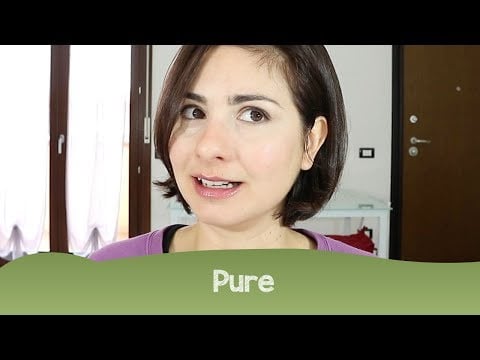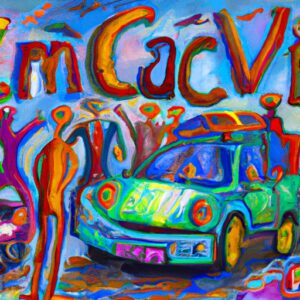Our list of Italian words goes on with a new entry. Today I’ll tell you something about the meaning of pure, an Italian word that can be a noun, an adverb, a conjunction, or a phrase.
Quite a versatile word, isn’t it? You can use it in many different situations, and you can even turn it into other words. You’ll see it in a few minutes 😉
How do you pronounce “pure” in Italian?
Before looking at how to translate pure from Italian to English, we should spend a few seconds looking at its pronunciation.
Since it is spelled like the English word pure, it is easy to make some confusion. The right way to pronounce pure is “poo-rae”.
Now, let’s skip straight to its meaning.
How to translate “pure” from Italian to English
How do you use pure Italian? Pure can be used in 4 different ways to form new words and expressions. Here they are.
1. Pure
Given its spelling, you might think that pure has something to do with pureness or innocence. And on some level, you might be right. Pure is the feminine plural of the word puro, which translates to pure.
However, it is not very common to talk about pureness in everyday conversation, so this might not be the first translation of pure that a native Italian would think of.
Pure is also an Italian adverb. Let’s see what it means when it is used that way.
2. Also, too, even
As an adverb, pure is the Italian translation of “also“, “too“, or “even“. Here’s some example:
Certo che puoi venire pure tu!
Of course, you can come too!
Ho comprato le carote, il sedano, le cipolle… e pure un po’ di le patate.
I bought carrots, celery, onions… and also some potatoes.
Mamma, oggi sono stato bravissimo. Guarda: mentre eri al lavoro, ho pure ridipinto il muro!
Mum, I’ve been a really good kid today. Look: while you were at work, I even repainted the wall!
You may have noticed that this makes pure a synonym of anche. The only difference between pure and anche is that the former is a little more conversational than the latter and is often used only with friends and relatives.
This is probably the reason why pure can be used with sarcasm to say things like:
Ci mancava pure questa!
“Just what we needed!” (Literally: We were missing that, too)
3. Although, despite, even if
Similar to the translations above, pure can also be used as a conjunction meaning “although”, “despite”, or “even if”.
In these cases, it introduces a “concessive clause” and is always followed by a past-gerund verb (being/having + past form of the verb). But I’m being too technical – let’s see it in action.
Pur essendo stato più volte in Inghilterra, non ho mai visto Stonehenge.
Although I’ve been to England multiple times, I’ve never seen Stonehenge.
In this example, pure has been shortened to pur, which is something Italians do when the next word is a gerund verb. It sounds better than pure essendo, doesn’t it?
4. Go ahead
When used after an imperative verb, pure is meant as a friendly way to give permission. In this case, its correct translation is: “please” – or in the case of fai pure: “go ahead”
Entra pure!
Please, come in!
Certo, fai pure.
Sure, go ahead.
The difference between pure and purè
Many new learners make confused between pure and purè. After all, they look almost the same – isn’t the only difference just a stress on the e? Eppure, single stress can make a huge difference in Italian.
In this case, we can go from pureness to vegetables. While pure means all the things you’ve read above, purè translates to… mashed potatoes!
Eppure & neppure
Pure is the root of two other words:
- eppure, which translates to “yet/and yet”, “still”, “nevertheless”, and other similar words.
- neppure, which means “even/not even”.
Il bar è vicinissimo a casa sua, eppure continua ad andarci in auto!
The bar is close to his house, and yet he keeps going there by car!
Non mangerei la pizza con l’ananas neppure se fosse l’ultimo pasto sulla Terra.
I wouldn’t eat pizza with ananas even if it was the last meal on Earth.

Enough for today
Pure questa è fatta… If you’ve read this post carefully, you can easily understand what that means.
See you soon to learn new Italian words together! 🙂









